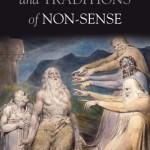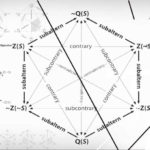We run our website the way we wished the whole internet worked: we provide high quality original content with no ads. We are funded solely by your direct support. Please consider supporting this project.
How can people who believe the open view trust a God who doesn’t control the future and doesn’t know for sure what will happen?
It’s true that according to the open view of the future things can happen in our lives which God didn’t plan or even foreknow with certainty (though he always foreknew they were possible). In this view, trusting in God provides no assurance that everything that happens to us will reflect his divine purposes, for there are other agents who also have power to affect us, just as we have power to affect others. This is for some a scary thought. But several considerations will put this fear in perspective.
First, how is the scariness of a view relevant to whether or not it’s true? There is no reason to conclude that something is true to the extent that it conforms to our wishes. Indeed, in this case the fact that the open view doesn’t conform to what we might wish were true actually provides one more reason for thinking that it is true, for as a matter of fact, reality rarely conforms to our wishes. If we are honest, our core belief about the world—manifested not by what we say but by what we do—is that this world is sometimes a scary place. Whatever view of God people might embrace, they still lock their doors at night. In other words, if we’re honest with ourselves, we all act as if the open view is true, regardless of what else we might theoretically believe.
Second, I do not see how affirming an all-controlling God provides any real comfort in the face of the frightening aspects of the world. Suppose there has been a string of assaults in your neighborhood. You are understandably concerned about your safety and the safety of your children. How does believing that every aggravated assault was ordained by God help you cope with this fear? It would still be a good idea to buy a padlock for your door and bars for your windows. You still know, at the core of your being, that the world is just as scary with your belief as without it. So what advantage is your belief?
I submit that your belief actually makes the world a scarier place, for two reasons. First, if God controls criminals and these criminals victimize godly and ungodly people alike, then it just might be that God has sovereignly decided to have one of these criminals victimize you and your family. And if God has ordained their brutality toward you, there is nothing you can do about it. Secondly, if God is the sort of God who is capable of ordaining such evils, then what is the basis of your trust in God?
If God doesn’t control all things, however, then there is something you can do about it. As a morally responsible free person you can make choices that maximize your safety and minimize your vulnerability against other people who choose to do evil. The world is perhaps still scary, but less so than if the Creator himself had the kind of character that made him willing to ordain aggravated assaults and the power to ensure that what he ordains will certainly be accomplished.
Some people are strangely inconsistent on these matters. A lady one time said to me that she didn’t know how she’d cope if she couldn’t trust the salvation of her children to “the God who knows the future.” I asked her how she was so certain God foreknew they were going to be saved. If God knows her children may or may not choose to be in relationship with him, there’s something they and their mother can do about it. But if their future has been eternally pre-settled, then there’s nothing to “trust” God for, and there’s not a thing anyone can do about it.
Finally, and most importantly, in the face of a scary world, the open view offers the same comfort the Bible offers. The open view affirms that God’s character is unambiguously loving and thus he doesn’t ordain evil. The open view affirms that, regardless of what happens to you, your eternal relationship with the Lord is secure (Rom. 8:31–39). The open view affirms that Christ will provide peace that passes understanding no matter what your circumstances may be. The open view affirms that no matter what comes to pass, God is always working to bring a redemptive purpose out of all situations (Rom. 8:28). And, precisely because the open view holds that the future is in part not settled, it can affirm that God can foresee future possibilities that are evil and do something about them. By contrast, if the future is eternally pre-settled, there’s nothing God or humans can do.
Category: Q&A
Tags: Open Theism, Q&A
Topics: Open Theism, Providence, Predestination and Free Will
Related Reading

How do you respond to Acts 2:23 and 4:28?
Question: Acts 2:23 and 4:28 tell us that wicked people crucified Jesus just as God predestined them to do. If this wicked act could be predestined, why couldn’t every other wicked act be predestined? Doesn’t this refute your theory that human acts can’t be free if they are either predestined or foreknown? Answer: In Acts…

God of Sense and Traditions of Non-Sense
As the title suggests, in his book, God’s Problem: How The Bible Fails to Answer Our Most Important Question – Why We Suffer, Bart Ehrman argues that the Bible has nothing compelling to say about the problem of evil. Well, I just put down a beautifully written four-hundred and fifty page book that compellingly argues…

The Logical Hexagon Made Simple
by: Greg Boyd The Hexagaon in a Nutshell For those of you who don’t have the twenty to thirty minutes it will probably take to read this essay but who nevertheless would like to have some idea of what the Logical Hexagon is all about, here is my two sentence elevator speech: The Logical Hexagon…

Open2013 Reflections
Both participants and leaders share about what was happening at Open2013 and some of their thoughts on Open Theism. Listen in and hear from Greg Boyd, John Sanders, Tom Oord, T. C. Moore, Jessica Kelley and many more.

How do you respond to Galatians 3:8?
“And the scripture, foreseeing that God would justify the Gentiles by faith, declared the gospel beforehand to Abraham, saying, ‘All the Gentiles shall be blessed in you.’” God has never wanted “any to perish”: he’s always desired “all to come to repentance” (2 Pet. 3:9; 1 Tim. 2:4). God’s goal has always been to reach…

Podcast: Is an Open Future World a Logically Possible World?
Greg gets technical in this abstract, yet profound, introduction to an open theist’s interpretation of the square of opposition. http://traffic.libsyn.com/askgregboyd/Episode_0217.mp3
